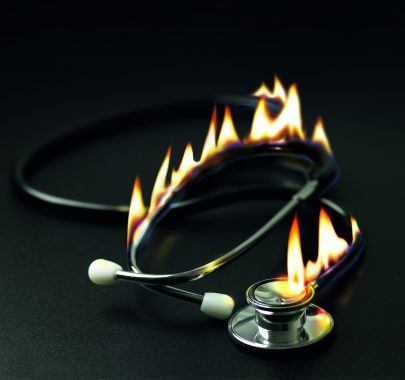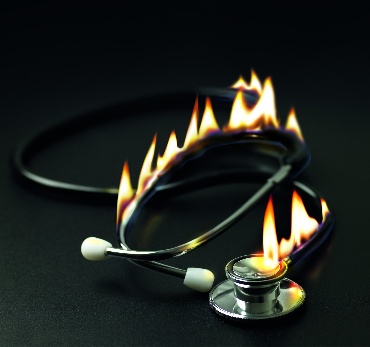Pulse campaign wins occupational support pledge for every GP


All GPs will be provided with ‘high- quality’ occupational health support if they need it, says NHS England, signalling a significant victory for Pulse’s ‘Battling Burnout’ campaign.
The announcement comes in NHS England’s official response to a letter sent by Pulse earlier this year – co-signed by more than 100 GPs – urging it to reconsider its ‘bafflingly short-sighted’ move to restrict occupational health support only to GPs when performance-related concerns have been raised.
NHS England chair Professor Malcolm Grant says he recognises the role of Pulse’s campaign in highlighting the dangerous levels of stress and mental exhaustion in the profession. He also says the NHS could not afford to lose good GPs and that NHS England would ‘play its part’ in ‘helping the profession deliver for patients’.
The GPC welcomes the move as a ‘breakthrough’, saying Pulse’s campaign helped put more pressure on NHS England in negotiations.
NHS England says it has taken a ‘step back’ from a previous announcement that it intended to replace the current postcode lottery of occupational health provision – formerly provided by PCTs – with funding only for GPs ‘where there are concerns about performance’.
Instead, it has decided to procure a ‘high-quality’ occupational health service that all GPs in England will be able to access. Salaried GPs will also be covered by the service, but practices will have to pay if staff members, such as practice nurses or managers, need to use the service.
‘We welcome Pulse’s work’
The Battling Burnout campaign kicked off last year after Pulse ran the largest-ever UK assessment of GP burnout, revealing that more than 40% of the profession was at high risk, and attracted coverage in the national press. The letter sent to Professor Grant in February urged him to reconsider NHS England’s decision not to fund comprehensive support for all stressed and burnt-out GPs. It was officially endorsed by the BMA, the RCGP, the National Association of Primary Care and the Family Doctor Association.
In his response to the letter, Professor Grant tells Pulse: ‘GPs are the cornerstone of the NHS, providing an essential service in all our communities. It’s a hugely valued and important role, but the demands can be intense. The role is set to become even more crucial because we need GPs to lead the transformation of primary care that we all want to see.
‘So we need good people to join the profession and to stay in the profession – we can’t lose them to burnout. I welcome Pulse’s work to improve the welfare of GPs. NHS England needs to listen with great care to what GPs are saying. We will play our part in helping the profession deliver for patients.’
NHS England will now fund an occupational health service that all GPs on the performers list across England can access, according to its head of primary care development Dr David Geddes, who is also a GP in York. The service will be similar to the one offered to GPs in Wales.
He says: ‘We have taken a step back, thinking we need equity between the professions, and we need to ensure that what we do have is affordable. We will prioritise those that are on the national performers list: doctors, and dentists and optometrists, but not practice staff, not nurses. Not when they are employed by the practice.’
Dr Geddes adds that procurement would begin ‘within the next four months or so’. He says: ‘As area teams’ contracts start to come up to expire, we will offer that procurement framework so there will be a range of different providers who will all meet the criteria of the service that we need to commission.’
GPC chair Dr Chaand Nagpaul says the announcement is a ‘step forward’ for GPs: ‘We are pleased that NHS England has understood that it is crucial that GPs, as well as all other staff in the NHS, should have access to occupational health services. That is a breakthrough. It is important they have recognised the need to resource this.’
He adds: ‘Publicity through the Pulse burnout survey, as well as opinions expressed by GPs, are vitally important so that politicians realise it is not just GPC leaders saying this.’
The next stage
The battle is not over. Please sign our letter online welcoming NHS England’s decision, but urging them to address the chronic lack of funding, plummeting morale and recruitment problems that worsen GP burnout. The letter also urges managers to reconsider their decision to exclude practice staff from the occupational health service and to monitor GP workload, so that they can respond more effectively to the problem.









